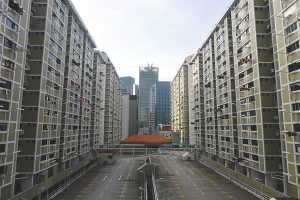Singapore appears to be shutting its doors to foreign talent just as the exodus of expatriates from Hong Kong gathers pace. The government recently tightened visa rules for white-collar workers, adding hoops to a process that employers already complain is too onerous. Will the city-state miss its golden opportunity to scoop up Hong Kong’s disgruntled elites? Hardly. It’s a different slice of the labour market that will feel the pinch from these stricter measures.
Within a matter of weeks, Singapore introduced a series of dramatic changes to its work visa for highly skilled foreigners, raising the minimum salary requirements and introducing a points system not unlike what’s used in the UK and Canada. Starting next year, new applicants will need to accumulate a certain score across a range of criteria that includes educational qualifications and skills, as well as salary relative to comparable locals (the higher the better). Companies willing to shell out big expat paychecks must have found truly exceptional talent, the thinking goes. Another important assessment is whether an applicant’s nationality contributes to company diversity.
The new regulations come as economic anxiety hits an apex, with inflation rising at its fastest clip in almost a decade. But years before the surging price of lattes and staggering electricity bills, locals bemoaned widening income inequality as aspirations of home ownership fell increasingly out of reach. It’s also hard to un-see the two-toned Rolls Royces roaring down Orchard Road when you’re puttering around as a Grab driver in a weathered Camry after a full day’s work.
As in many other rich countries, the pandemic brought those fears to the foreground. Social media buzzed with worries about losing jobs to foreigners and nationalist rhetoric started becoming more common. The concern isn’t unjustified: Non-residents comprise 27% of a population of 5.5 million, and foreigners make up more than 20% of the professional labor force.
In the most basic terms, there are two different types of expats: Those willing to get paid less than Singaporeans, thus undercutting the domestic workforce, and the handsomely compensated executives from abroad who make more. Employment-pass holders in the first group often do unglamorous but decently paid IT and back-office work in the financial sector.
Expats in the second category are more likely to be the managing-director and wealth-adviser types coming in from Hong Kong. The world’s smartest, richest expats will always be welcome in Singapore. Whether they can hire below them to their liking will be another matter entirely.
—Bloomberg
 The Gulf Time Newspaper One of the finest business newspapers in the UAE brought to you by our professional writers and editors.
The Gulf Time Newspaper One of the finest business newspapers in the UAE brought to you by our professional writers and editors.
